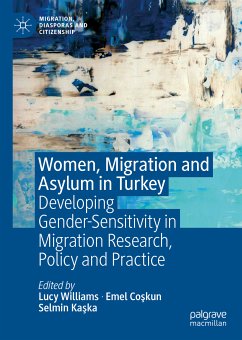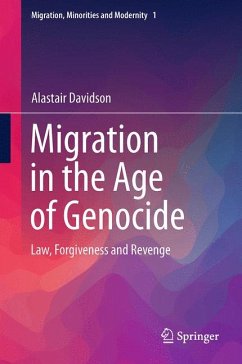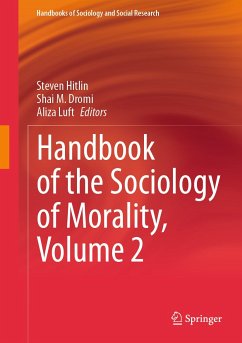
Evil in the Modern World (eBook, PDF)
International and Interdisciplinary Perspectives
Redaktion: Dryjanska, Laura; Pacifici, Giorgio
Versandkostenfrei!
Sofort per Download lieferbar
104,95 €
inkl. MwSt.
Weitere Ausgaben:

PAYBACK Punkte
52 °P sammeln!
This interesting volume focuses on a set of phenomena which increasingly alarm the political world and public opinion: from the more obvious ones like torture, disease, human trafficking, abuse, genocide, displacement, to more subtle forms found in sports, technology and law. It looks at how and why these phenomena are universally condemned, and could be considered to threaten the very foundations of modern democracy; yet continue to be tolerated. The volume therefore goes beyond what Hannah Arendt has called the "banality of evil" and discusses the presence of condemned and heinous practices ...
This interesting volume focuses on a set of phenomena which increasingly alarm the political world and public opinion: from the more obvious ones like torture, disease, human trafficking, abuse, genocide, displacement, to more subtle forms found in sports, technology and law. It looks at how and why these phenomena are universally condemned, and could be considered to threaten the very foundations of modern democracy; yet continue to be tolerated. The volume therefore goes beyond what Hannah Arendt has called the "banality of evil" and discusses the presence of condemned and heinous practices in society as fluid and chaotic but as non-trivial; capable of great transmutations through various epochs. Practices and actions considered as "evil" manifest in situations where individuals or groups hold power or seize power, and the contributions in this volume explore the close relation between power and evil. The volume draws upon sociology, psychology, cultural studies, political science, as well as philosophy, theology, anthropology, and neurology of the individual and of the group to provide a comprehensive understanding of the multiple facets of evil in the contemporary world.
Dieser Download kann aus rechtlichen Gründen nur mit Rechnungsadresse in A, B, BG, CY, CZ, D, DK, EW, E, FIN, F, GR, HR, H, IRL, I, LT, L, LR, M, NL, PL, P, R, S, SLO, SK ausgeliefert werden.












